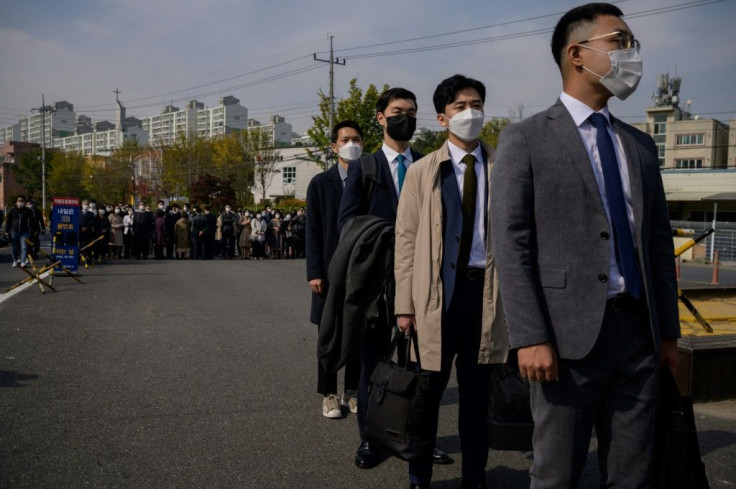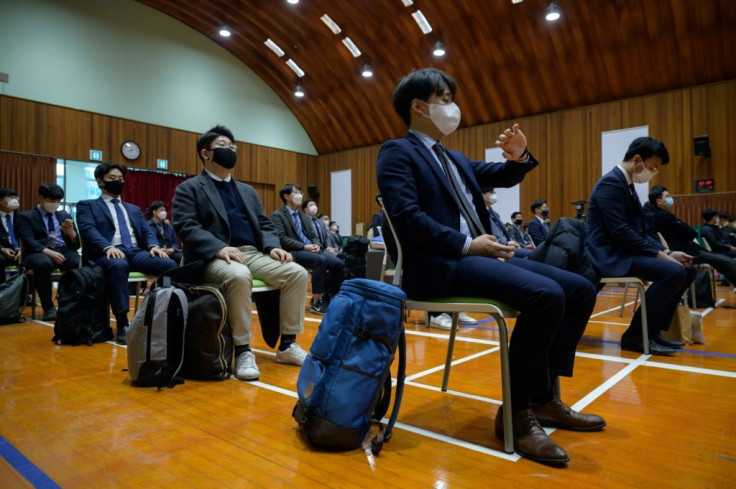South Korean Jehovah's Witnesses Begin Prison Work Terms
Dozens of South Korean Jehovah's Witnesses in suits and ties lined up to enter a prison on Monday -- to begin training as administrators, rather than the jail terms they used to face as conscientious objectors.
The South remains technically at war with the North and maintains a compulsory conscription system to defend itself against Pyongyang's 1.2 million-strong army.
For decades the only alternative was conviction and jail, and with it lifelong stigma, but in total tens of thousands of conscientious objectors, many of them Jehovah's Witnesses, have been willing to pay that price to adhere to their beliefs.

A new scheme for those who object to bearing arms on religious or moral grounds went into effect on Monday, requiring them to work as prison administrators for three years -- twice the length of normal conscription.
The first to benefit were 63 Jehovah's Witnesses who arrived at the Daejeon Correctional Facility south of Seoul in cheerful mood, exchanging joyful hugs with family members.
"The sacrifices of countless people" had made his alternative service possible, said Shin Dong-gil, 26.
"This moment has come to us because of those brothers who faithfully defended their beliefs," he told AFP.

It was a marked contrast to the start of normal military conscription, when young men with freshly-shaved heads and tearful eyes bid farewell to their loved ones at the entrance to boot camp.
All able-bodied South Korean men are obliged to serve for 18 months before they turn 30, in a rite of passage that -- while sometimes resented -- can form lifelong bonds with fellow soldiers.
Avoiding the duty in a conformist society faced with the world's last remaining Cold War conflict can bring with it employment consequences and lifelong social stigma.
But a landmark Supreme Court ruling in 2018 accepted religious and moral principles as legitimate reasons to oppose military service, paving the way for conscientious objectors to avoid becoming convicts.
The 63 who began their duties on Monday will undergo a three-week course before being dispatched to jailhouses around the country, where they will be entitled to the same pay as regular conscripts.
Shin was accompanied to the Daejeon facility by his brother-in-law Lee Yang-sub, himself a former inmate as a conscientious objector.
"I am really happy that my brother-in-law is able to take part in this alternative service," Lee told AFP, adding he had "no regrets" over having to serve time for his faith.
© Copyright AFP 2024. All rights reserved.



















